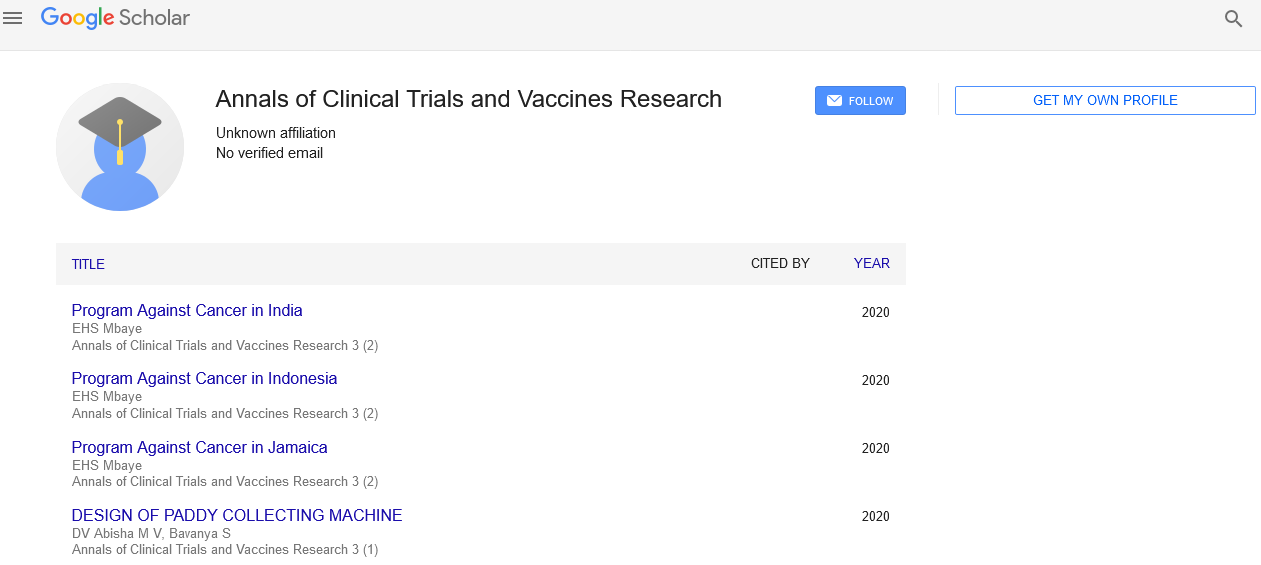Short Article - Annals of Clinical Trials and Vaccines Research (2020) Volume 3, Issue 1
Practicing Empathy during COVID19 Pandemic
Shantanu Singh1 and Sushil Kumar Singh2
1 Suny DownState Medical University, NewYork
2 Pramukhswami Medical College, India
Abstract
The ongoing COVID-19 pandemic across 114 countries (March 2020) has resulted in massive death-toll creating a scenario, witnessed may be once in the century declaring it a global emergency and crisis (1).
Fear, frustration, panic, anger, anxiety, confusion, we all has been dealing during the COVID19 pandemic. Despite this crisis, health workers and health professionals acted courageously and selflessly despite the fear and anxiety they were experiencing themselves. Doctors and health workers demonstrated empathy in each and every encounter--for patients, coworkers and for themselves, all over the world.
What is empathy? “Empathy is described as the action of understanding, being aware of the feelings, thoughts and experiences of others without explicit communication." Stated differently, empathy is the willingness to put oneself in another's situation and imagine their physical and emotional needs (2).
Research has shown that empathy is an emotional skill that can be learned. Listening to others, engaging in acts of service, observing the empathetic action of others, and imaging ourselves in another person's situation are all strategies that can build empathy (3).
How Does Empathy Apply To Our Patients During The Covid-19 Pandemic
For our patients, we can act with empathy by simply being there to serve them. Our prime focus is to maintain normalcy for patients. Life is disrupted but we can provide stability. We have to become more proactive in this difficult period. We should give more time to listen and counsel our patients. We should provide more love and care to our patients.
In this testing time, it is most important to practice self-care more consciously and deliberately. Caring for ourselves enables us to care for our families, our friends, our patients and our coworkers. It is very important to keep ourselves in the best of physical, mental, psychological and social health. Remember to take a break, Stepping away from social media, unplugging allows us to rest our mind and body. It will make our self rejuvenated and emotionally charged.
We should also take genuine interest and concern for the health of our coworkers. We have to be more empathetic towards our coworkers. We should inspire and motivate our coworkers if we find them disappointed or depressed. Acknowledge accomplishments right away. The easiest way to recognize their good work is to acknowledge their contributions right away in public.
Appreciation has the power to energize everyone. We should also express our gratitude for their courage and passion in proactively participating in compassionate care of patients without feeling fear in their hearts (4).
References
- Coronavirus disease 2019 (COVID-19) (Mar; 2020): https//w.w.w.cdc.gov/coronavirus 2019-ncov/cases-in-us. htmlcoronavirusdisease.2020.
- Emotional Intelligence: Why it can matter over IQ? Book by Daniel Goleman, 1995.
- Helen Riess.(2017) The science of empathy. Journal of patient experience. 4(2): 74-77. Published online 2017 may 9 doi:10.1177/2374373517699267.
- Susan Milligan. Acting with empathy during COVID-19: March 30th, 2020. ASC COMMUNICATIONS 2020.

